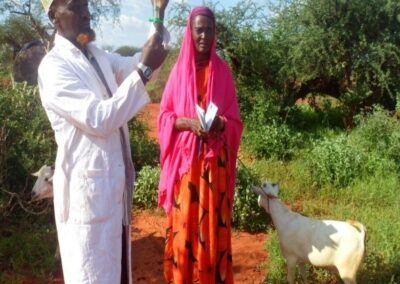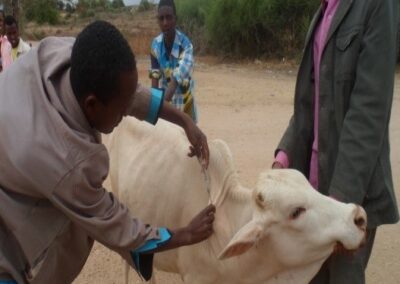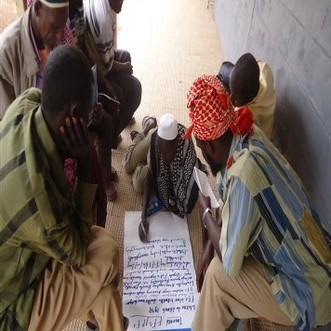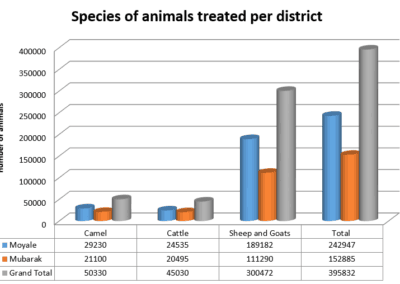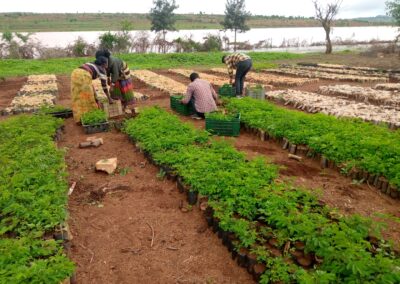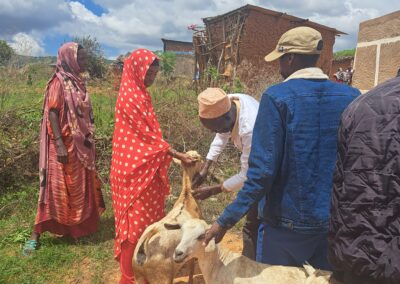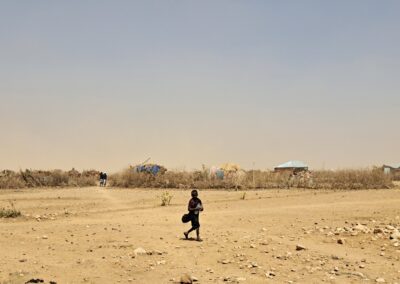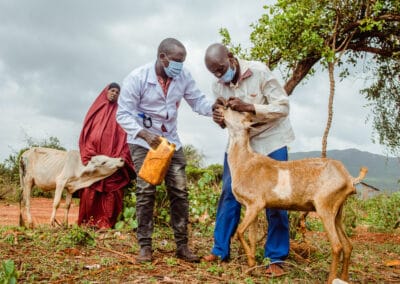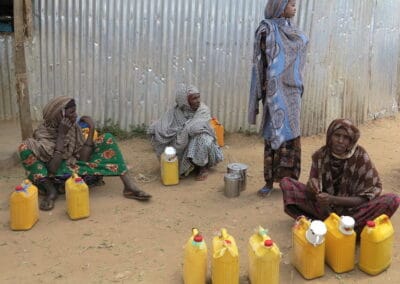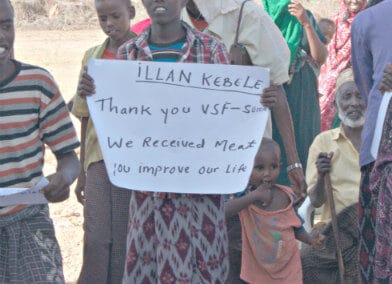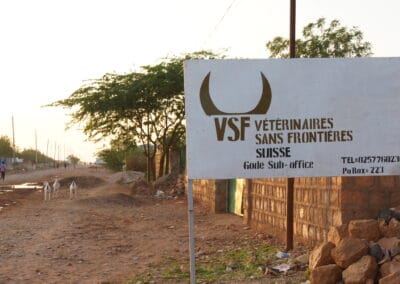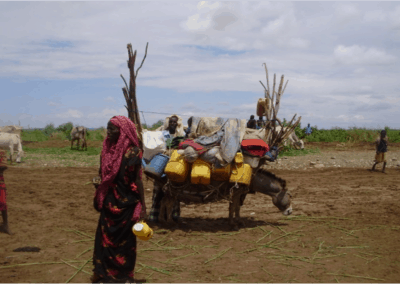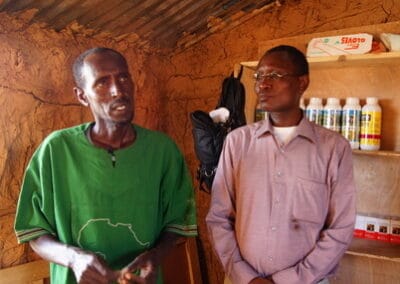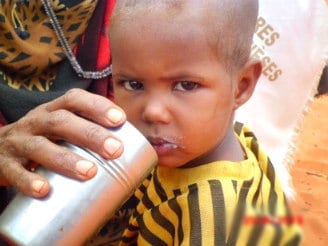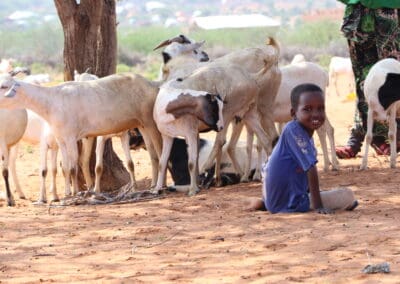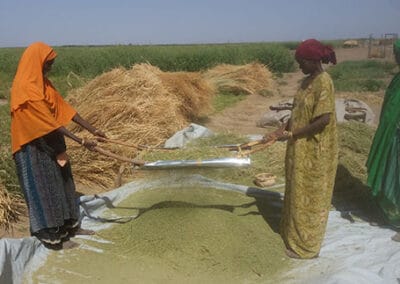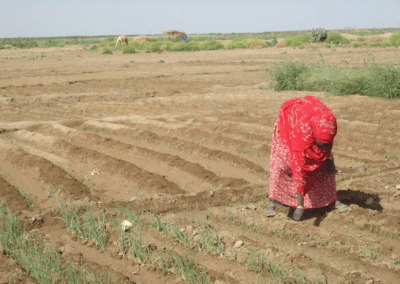Livelihood support to improve resilience of pastoralists (Project ELSIR)
Project Overview
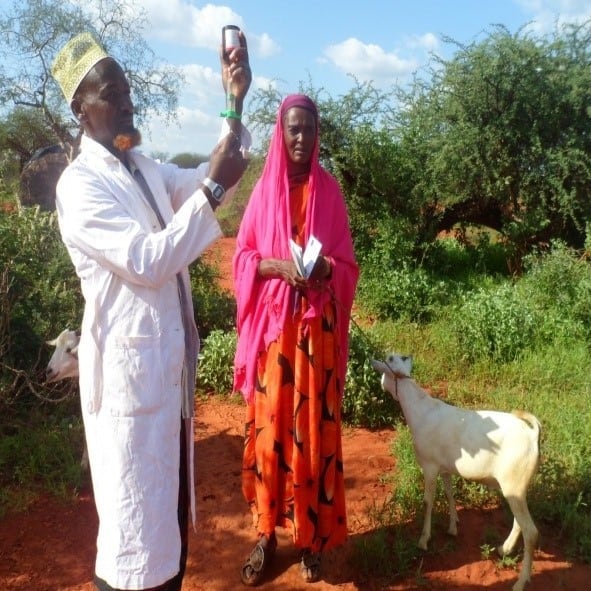
Country
Ethiopia
Project name
ELSIR
Project status
Finished
Duration of the project
| Start: | 01.04.2014 |
| End: | 30.09.2015 |
| 17 months |
Budget
Donors
SDC and ECHO
Project area
Topics
Tags
Background
Livestock constitute the principal financial asset of pastoralist communities, whose livelhoods depend almost entirely upon them and their products (milk and meat). Because of frequent droughts the pasture and water conditions are bad, leading to health problems of livestock, affecting heard productivity and resilience. The animals can only be nourished poorly, become sick or die.
Especially poor pastoralists often live in more remote areas and sometimes lack access to veterinary services. Enhancing access to and quality of animal health services greatly improves the wellbeing and income of the pastoral households. Healthy animals are more resilient and therefore better able to withstand hard times, which is why animal health services are a key element in the health and welfare of nomadic and semi-nomadic populations.
Project:
In the ELSIR project VSF-Suisse focuses on working out measures with the pastoralist communities to improve animal health and therefore leading to a more stable livelihood of the inhabitants.
Twenty CAHWs (Community Animal Health Workers) have been trained, equipped with start-up kits, and linked with existing agro-veterinary shops. Logistical support has also been provided to control livestock disease outbreaks.
2500 vulnerable households lacking access to veterinary services were provided with cash vouchers to protect their core breeding stocks.
Furthermore through the ELSIR project two traditional water points were rehabilitated in order to harvest as much water as possible during rainy periods and thus boost water availability during long dry seasons.
Through the introduction of Pastoral Field Schools, three vulnerable pastoral communities were supported in establishing learning platforms which allowed them to analyse their livelihood systems, identify constraints, and test applicable solutions.
At the same time these communities were supported to establish savings-and-loans groups (also known as Village Community Banks or VICOBA) . so as to improve the availability of cash at village levels for contingency events or periods of crisis, and for stimulation of income-generating activities. A participatory approach was applied in the ELSIR project, involving local government and working with the communities in planning, implementation, monitoring, and evaluation. By doing that it was possible to develop sustainable institutions that will continue beyond the project’s timespan.

